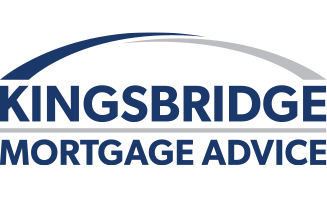Our Guide to the popular UK Mortgage Rates in 2024
As we move into February, mortgage rates and the effects on home owners continue to gain news coverage. There could be some light at the end of the tunnel though! Following 14 consecutive rises since December 2021, we just saw the Bank of England’s base rate being held for the fourth time in a row, bringing speculation that we might see a decrease in 2024.
2023 was another challenging year in many ways for home owners. 57% of mortgages up for renewal in 2023* were fixed at rates below 2%, meaning many households were looking at a significant increase in their monthly mortgage payments. With the base rate continuing to rise up to August, and some lenders reacting to the rises by bringing down their rates, we had many calls from concerned homeowners enquiring about what they should do?
The reality is, the UK mortgage market is in a constant state of flux, which is influenced by many variables, including interest rates and property availability. Similarly, the Bank of England’s base rate can be affected by national or global events and politics. Because of this, no one can accurately predicate what’s going to happen throughout 2024, so we thought we would put together this guide on the key mortgage products available and what they mean for you.
Understanding these rates is crucial for anyone considering a property purchase or remortgage.
Fixed-Rate Mortgages
Research** shows that around, 81% of homeowner mortgages are on a fixed rate contract, which is unsurprising when dealing with uncertainty as fixed-rate mortgages provide the borrower with more of a sense of financial security. The interest rate on your mortgage is fixed for a term (number of years), usually anywhere between 2-10 years. The most popular option is a two year or five year fixed rate mortgage. This is because, if you want to make any changes like move home or remortgage, you may have to pay thousands of pounds to exit your current fixed-term mortgage deal. This would offset any savings made by being on a fixed-term deal.
The main benefit of this mortgage is, it shields you from fluctuations in the market, making it easier to budget and plan for the future as you know what you are paying each month.
Tracker Mortgages
Tracker mortgages are a good option for those comfortable with market-driven fluctuations. This type of mortgage is tied directly to the Bank of England’s base rate, when the base rate rises or falls, so does the interest rate on a tracker mortgage. This can result in immediate cost savings or potential challenges, making it a choice for borrowers whose circumstances allow for adaptability to shifting interest rates.
If you are confident your finances and income allow you to navigate the market changes then a tracker mortgage could be the one for you, as it allows you to benefit from favourable conditions while staying vigilant to potential rate adjustments.
Variable-Rate Mortgages
Each lender can set their own rate of lending. Variable-rate mortgages are set by individual lenders and can change at their discretion. The pros of a variable rate mortgage can include lower initial payments than a fixed-rate loan, and lower payments if the interest rate drops. However, the downsides are that the mortgage payments can increase if the interest rate rises. Although this means a variable-rate mortgage can lead to lower initial payments, they come with some uncertainty. If your lifestyle and circumstances allow you to navigate potential rate increases, you may find this is the mortgage for you.
Discount Mortgages
Discount mortgages offer a reduced interest rate for a specified period. They are often linked to the lender’s standard variable rate (SVR). Although this initial discount can provide temporary relief, you should be aware that rates will likely rise once the discount period ends.
For example, if your mortgage offers a 1.5% discount and the SVR is currently 5%, your interest rate will be 3.5%. If your lender’s SVR goes up to 6%, your new interest rate will be 4.5%, and your repayments will increase.
This option suits those who are confident in their ability to manage potential future increases and seek a more affordable starting point.
How do you know which mortgage is right for you?
What works for one household may not be right for you, so it’s important to get professional advice when it comes to mortgages. That’s where we come in. We have helps thousands of home owners with their mortgages. We get to know all about you, your circumstances and what it is you want to achieve and will advise you on the most suitable option we think is right for your needs.
We take into consideration your income, outgoings, savings, financial goals, risk tolerance, and market outlook. Whether you’re a first-time homebuyer or are looking to remortgage, it’s important to understand the intricacies of these mortgage rates so you can select the one that best suits your needs.
Our advisors will guide you through this process, helping you make informed decisions aligned with your unique circumstances.





